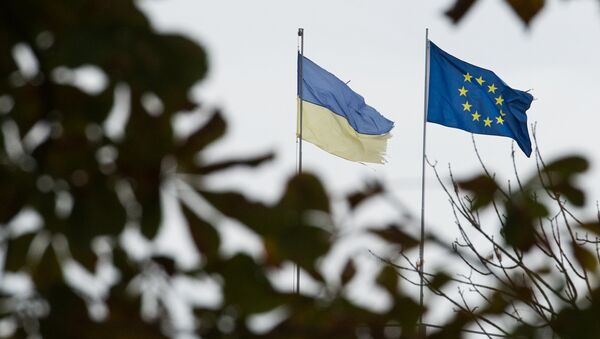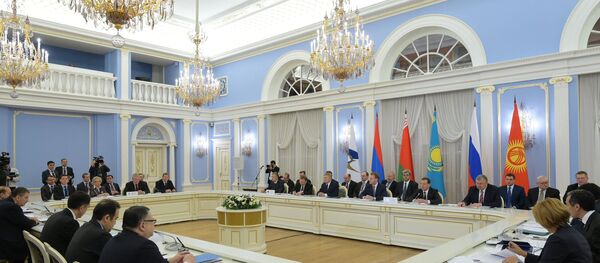“We cannot interfere in the current leadership in Kiev, which is acting in detriment by undermining and being subservient to outside forces of its economy, this is Ukraine’s domestic affair, its ‘sovereign choice,’ as bureaucrats in Kiev and Brussels refer to it. It’s unclear why Russia has to pay for that choice. We have our own economic interests that we have no plans of sacrificing, especially to satisfy foreign ambitions,” the ministry said in the statement.
In 2014, Kiev and Brussels signed an agreement aimed at Ukraine's political association and economic integration into the bloc. The agreement seeks to create a free trade zone between Ukraine and the 28 EU member states.
Moscow has repeatedly said that if Ukraine retained preferential trade rights within the Commonwealth of Independent States (CIS), while simultaneously opening its market to European goods, Russia’s market could be flooded by an uncontrolled flow of European goods via Ukraine.
On December 16, Russian President Vladimir Putin signed a decree on the suspension of a free trade deal with Ukraine within the CIS, effective from January 1, 2016.
According to the Russian Economic Development Ministry, only short-term losses for Russian businesses over the EU-Ukraine Association Agreement are estimated at $3.5 billion.


